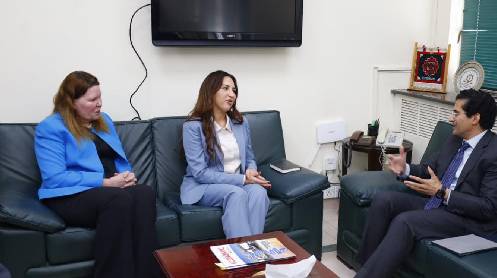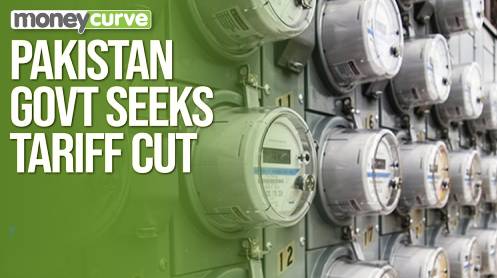The federal cabinet on Tuesday rejected the recently-released audit report which hinted at billions of rupees of irregularities in Covid-19 expenditure, vaccination process and Ehsaas relief programme.
The cabinet meeting presided over by Prime Minister Imran Khan also asserted that the Election Commission of Pakistan (ECP) was bound to hold the next general elections on the basis of electronic voting machines (EVMs) in line with the recent legislation carried out by the parliament.
The cabinet expressed its satisfaction over the ‘reduction’ in prices of food items by 0.67 per cent while media reported that according to the Consumer Price Index (CPI), inflation had risen to over 11pc in November.
On the issue of retired Justice Rana Shamim, the cabinet believed that a conspiracy had been hatched against former Supreme Court chief justice Saqib Nisar by ex-prime minister Nawaz Sharif.
Prime Minister Khan also prohibited cabinet members from travelling abroad to ensure austerity.
“The cabinet rejected the audit report on Covid-19 spending and asked three relevant organisations to give their presentations in this regard,” Information Minister Fawad Chaudhry said in a press conference after the cabinet meeting.
The report on “expenditures incurred on Covid-19 by federal government” released by the finance ministry had pointed out irregularities in government interventions to ensure availability of five essential items — sugar, wheat flour, oil and ghee, pulses and rice — in Utility Stores at subsidised rates.
Mr Chaudhry said the finance ministry had already rejected the audit report and Ehsaas programme in charge and PM’s aide Dr Sania Nishtar had also clarified the position of her organisation.
About the use of EVM in the elections, he said: “The cabinet was of the view that following legislation on electoral reforms, the ECP was bound to hold the next general election [in 2023] through EVM.”
He said the cabinet expressed reservations about videos circulating on social media which showed votes being bought for the upcoming by-poll in Lahore.
“Such illegal activities would not have come to the fore if steps had been taken by the ECP against horse trading in the recent Senate election,” he added.
Free and fair polls were a lifeline for a democratic system and were the basis for formation of a government, he said, urging the ECP to take the matter of vote purchase by specific political parties in Lahore to a logical conclusion.
“If elections are not conducted through EVMs, the government might not be able to fund them,” he said, adding that the existing laws only gave legitimacy to polls held via the EVMs.
He said Law Minister Dr Mohammad Farogh Naseem was of the view that on prima facie, the government could only give funds to the ECP for elections held through EVMs.
The government had formed a committee in this regard and the law ministry would give its opinion on the matter, he added.
The minister said the Election Commission should ensure the use of EVMs in the next elections as the Parliament had given a mandate in this regard.
Speaking about former judge of Gilgit-Baltistan, the information minister said during hearing on the matter on Tuesday, retired Justice Shamim told the court that he had not yet examined the affidavit attributed to him.
When asked whether he had given it to a newspaper, the former judge had responded in the court, “My affidavit is sealed in a locker in the UK. I don’t know how it was leaked.”
Terming the development “surprising”, Mr Chaudhry said if the affidavit was in a locker how did it reach the newspaper that initially reported it, adding that “it seems that the affidavit reached the newspaper through Nawaz Sharif”.
“A campaign has been launched against the judiciary and armed forces and we hope that the court would take the matter to its logical conclusion,” he added.
According to media report, Justice Shamim revealed in an alleged affidavit that he had witnessed Saqib Nisar relaying instructions to a high court judge not to release former prime minister Nawaz Sharif and his daughter Maryam Nawaz in corruption references.
Prices of commodities
Federal Minister Chaudhry claimed that except for tea, Pakistan had the cheapest prices of all other kitchen commodities in the region, comprising India, Sri Lanka and Bangladesh.
“We are doing whatever we can in these times of global inflation,” he remarked.
The minister also announced that a bumper rice crop was expected this year with a harvest of nine million tonnes.
He said in just a month’s period, the cost of sugar had come down to Rs60 per kg, blaming the Sindh government for the increase in price.
“Inflation is rampant in the cities like Karachi and Hyderabad. The Pakistan Tehreek-i-Insaf (PTI) government is being portrayed as inexperienced whereas the party that has been governing the province for over 30 years has failed to check food inflation,” he added.
The 40pc upward trend in the Sensitive Price Index (SPI) was due to inflation in Karachi and Sindh, the minister said, adding that the price of tomato had registered 15.4pc decrease, onion, 7.4pc and the cost of chicken had fallen by 6.6pc. The price of a bag of wheat flour had reduced by 1pc, he added.
The minister said in Rawalpindi, Gujranwala, Lahore, Multan and Faisalabad, a flour bag was available for Rs1,100 whereas in Karachi, it was priced at Rs1,404 and Rs1,443 in Hyderabad due to bad governance of the Pakistan Peoples Party (PPP) government.
He said similarly, in the international market, a sack of urea was available for Rs10,500 per bag while in Punjab, it could be bought for Rs1,700.
Gas shortage
Talking about gas, of which the country was seeing shortage with the onset of winter, the minister warned that gas reserves in the country were depleting.
“And we have not discovered any new resources,” he said, highlighting the need for a strategy to address the issue of disappearing indigenous reserves of gas and the emerging shortfall of the commodity.
He said only 28pc Pakistanis were actually being supplied gas, while “the rest of the country, deprived of the commodity’s supply, facilitated this small percentage”.
It has been learnt that PM Khan has barred cabinet members from travelling abroad to ensure austerity and urged them to work more vigorously in their respective ministry to tackle economic challenges in the country.
However, talking to Dawn, Fawad Chaudhry said the prime minister had not issued such instructions for any specific reason, but had been urging cabinet members in almost all meetings to adopt austerity measures and avoid unnecessary foreign trips.
He said the cabinet had also expressed concern over the possible spread of the new Covid-19 variant, Omicron, and asked provincial governments and citizens to ensure that inoculation was complete.
“The virus is surely going to reach the country, therefore wearing masks was necessary,” he emphasised.
Sharing other developments from the cabinet meeting, Mr Chaudhry said formalities had been completed to receive $3 billion in safe deposits and $1.2bn worth of oil supplies on deferred payments from Saudi Arabia.
The meeting had also given approval to limit construction of buildings around airports and tasked Special Assistant to the Prime Minister on Climate Change Malik Amin Aslam to formulate a long-term policy on smog in Lahore.
The minister said the Federal Investigation Agency had also been asked to launch a programme against human trafficking.
Pakistan would also be sending 50,000 tonnes of wheat to Kabul and hosting an extraordinary meeting of the Organisation of Islamic Cooperation’s Council of Foreign Ministers to discuss the situation in Afghanistan, he added.





